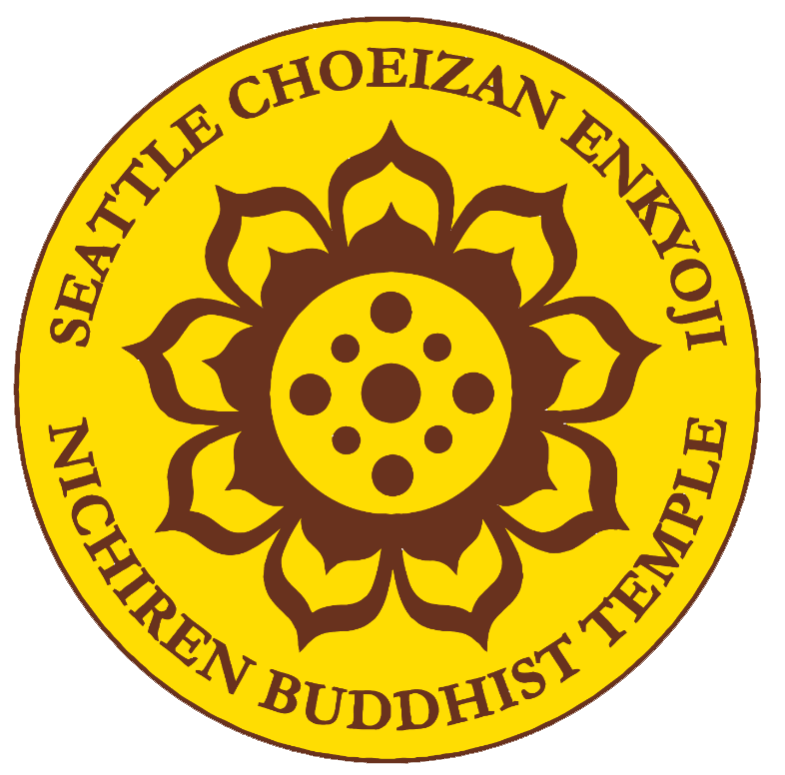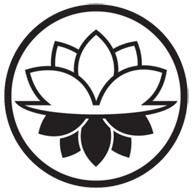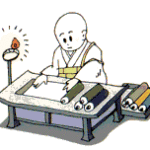Hello everyone,
I wanted to write about a problem that is an issue throughout our modern society. This is concerning “Personal Labels” or as I say “Personal Boxes” that we have created and placed ourselves into. We as practitioners, know on a rational level, that we should grow ourselves in insight and through the exploration of things in our minds. When I am speaking with or watching most people, all that is manifested through the
ir actions is the personal confinement and imprisonment of their lives founded in simplistic ideas and name tags that they adorn themselves with and will even die for. In a conversation, it is as if their minds are already made up and that the event simply becomes a monologue instead of a dialogue between two beings, ignoring any new information or differing perspective from their expreinces. We as Buddhists are striving to manifest the big mind in our lives that is able to encompass and see all Sentient Beings based in reality, “As it is”. If we are looking from a place of ego, separate from other beings, I would have to say that is definitely a deluded vision of reality. This makes me question if people who say they practice Buddhism, really care to see the mind of the Buddha or simply they cover up their made-up minds, placing the tag Buddhism on it, being happy with not going any further or challenging themselves. This is most obvious in Buddhist extremists.
According, to Erick Erickson’s “8 Stages of Psychosocial Development”, which is a theory explaining our development from birth and how the different levels of experience in each stage of our lives, affect us and our lives if we are to mature or not to old age. I found this intensely interesting in learning how to understand my mind as well as others, so that I can assist them, through the concept of Ichinen Sanzen. One of the stages that particularly jumped out at me, because of my question about self-imposed labels, was the stage of development from 13-21 years of age in which we develop a “Strong Identity” vs. “Role Confusion”. What this stage is referring to is that during this age, we are most vulnerable to “Role Confusion”. This confusion is grounded in the labels that we impose on ourselves as our identity. I am Jewish, I am White, Democrat or Republican, or even that I am religious! I see this as one of the major struggles that have been growing in our current world culture, a struggle of many identities and their roles in the world and how those (roles) interact with these identities and the identities of others.
It is stated that during this stage of development, we are supposed to look into and understand our personal identity and what that means in the context of the world. We should come to realize and want to break out of being confined, realizing that no box or label is big enough to define a human being. We are not simply one thing, as we know that we are made up of a myriad of causes and conditions that are constantly changing. I am sure that as a teenager you hung out with a particular group of friends or a click to find confirm your identity. Even if you were all different, there was some underlying reason for your choice of friends or acquaintances. During this time of development, we are meant to ask deeper questions about our nature and see that each being although we have similar connections, there is also the possible concept of an individual. This, of course, is a very challenging part of our development, especially being able to speak from our true mind with the possibility of being rejected. I come from a very small rural town that I experienced that my views and beliefs may be very different from the majority of people living there. This caused many choices that I had to make in attempting to see my authentic self. However, I see many people who attached to simplistic versions of themselves, such as I am this or I am that.
Let us see what the Buddha has to say about labels? We have just read and studied chapters 1-4 of the Kanjin Honzon Sho written by our founder Nichiren Shonin, during our Health and Wellness Meditation Retreat this month, in which he takes us through how to see our true nature by way of the superb teaching of Ichiren Sanzen leading us to understand the true object of worship or as I say “true purpose”. In it, our Founder states, “You should know from this, that the insight of the Buddha is inherent in the minds of all living beings.” (Hori, Kyotsu, Kanjin Honzon Sho, Tokyo: Nichiren Shu, 1991) They use the wording, which is very appropriate in this discussion, “Causing them to Open the Gate…”. We can also see this phrase multiple times in the Lotus Sutra as well, driving home an important point. What does this mean to you? I see it in my life to mean that I “open the gate” of all of the realms to reveal the Buddha-nature inherent in each moment and that one is not bound to a simplistic reality contained in simple beliefs confining me to a single realm. In each moment the truth is revealed to us through our Cognitive actions which is either wide and vast like that of the Buddha, in which the gate is open, or as self-defeating and ignorant views or labels, in which the gate is closed and we become bound by the lower realms of mind, lacking the insight to see the Buddha-nature contained therein chaining us into the behaviors of the unenlightened realms leading to hell manifested as anxiety and depression.
Another way that we can look at this is as a map of our lives and how to expand it beyond our limitations seeing wherein our development that we may have become stuck in Samsara. Looking at the bigger map of Ichinen Sanzen and the Lotus Sutra, how may we continue to grow? Who can I become? These all become freeing questions rather than traps of ego. I don’t want to be the labels that are imposed by myself or by others, which are nothing but boxes that we must move beyond to see the reality of all things. This is demonstrated in the Buddha’s vow, “I am always thinking”, that means that the way of the Buddha-mind is to observe 観 (Kan) properly releasing our minds and allowing us to see the true object of veneration in our lives.
The next level stated in this theory is the level of growth as “intimacy vs isolation”. Intimacy means that you are able to in social relationships and are flexable enough to be surrounded by healthy people of different beliefs and ideas outside your comfort zone versus simply trying to conform to a like-minded group, identity or dogmatic belief which isolates you from the majority of people. People may find that they are unable to come from a place of personal insight, to see the relationship with other living beings and instead become more and more isolated from others by their beliefs born out of “Role Confusion” of ourselves in society or groupthink. It seems more and more people are unable to be social or intimate with a wide variety of people due to their personalized “Roles” that they identify as self. I see this also in peoples aversion to the jewel of the Sangha.
Here in Seattle they recently took a poll from about 1,200 residents. In this poll, they asked these people if they like to meet new people and move into new social circles. Almost half said that they don’t even want to talk briefly to people they don’t already know, much less get to know them on an intimate level. This means that they are set in their ideas/mindsets and can not communicate or connect with others because of a possible differing of opinion or belief, causing conflict in their self-identity. The Buddha showed us that our perception of the “Self” is something unstable and constantly in flux moving among the 10 worlds or states explained through Ichinen-Sanzen.
“Meditative practice means for one to meditate on his own mind, observing through it the ten realms, from the hells up to the realm of the Buddhas, all of which are by nature contained in every mind.” (Hori, Kyotsu, Kanjin Honzon Sho, Tokyo: Nichiren Shu, 1991)
An even more serious example of this is found in Japan, people that are called hikikomori (pulling inward or being confined). These are reclusive adolescents or adults that have withdrawn from society and live in isolation. It is estimated that the number of people suffering from this is around 10 million. As you can see there are a variety of sufferings associated with this limiting belief and or development.
When we are operating by a role or a label, we are not free. Let us evolve! Of course, we know of the teachings in Buddhism about the idea of no-self vs. self. This is a primary doctrine of many schools of thought and has become accepted as a general idea of Buddhism through the doctrine. It is interesting however if you read the Nirvana Sutra the Buddha states that the concept of emptiness and no-self are taught as a partial truths, such as the Buddha stated in Chapter 2 Expedients. To allow people to become a “empty cup” in order to see what really resides in their minds and the concept of the Middle Way. He goes on to state that there is a true original self that we must awaken to correctly see into the truth of the Buddhadharma, that being Buddha-nature. I would state that this is the authentic self apart from the bonds of words and ideas. This is the place that gives us room to learn and gain insight into life rather than stagnation. If we do not abide in this place, we will be unable to self-regulate properly ideas and emotions (Wisdom) and will be unable to relate compassionately to others.
This takes us to the seventh of the eight stages as defined in Generativity vs. Stagnation marked as middle-adulthood in that we “make our mark” on the world by creating an example that is creative and nurturing of others. Ultimately, the end result is in our lives will result in the eighth level of integrity vs. despair (Older Adulthood) and this depends on the causes and conditions of our cognitive action (Karma) which will result in our freedom or confinement.
“If you profoundly change your philosophy, your thinking, then you are more likely, in all probability, to change your feelings and disturbed behavior”. (Albert Ellis)
I say these things to help liberate not tear you down. We grow in Insight when we compare what we know/ or think that we know, to new information. If we are to grow in insight, we must challenge our beliefs and personal stances to truly “see” if we are in harmony with reality or opposed to it, which as the noble truths teach us is the cause of suffering or liberation. I cannot do it for you, however, if you are around me, you may feel challenged or upset, this is what will allow this issue to come to the forefront of your life and you must ask yourself, “why, I feel this way?” It is important that you yourself correctly approach the teachings of the Buddha and operate without being fully controlled by your egos, opinions, and beliefs and “open the gate” to allow these things to be challenged and new insight to be gained “Clear Mirror”, only you can do it and devote yourselves, I cannot do it for you. This is scary and uncharted territory, so I hope that you don’t simply run away or make more labels or simplistic ideas.
“Through having only human eyes, those who study Mahayana Buddhism are regarded the same as having Buddha eyes because they see the truth of Buddhism”. (Hori, Kyotsu, Kanjin Honzon Sho, Tokyo: Nichiren Shu, 1991)



